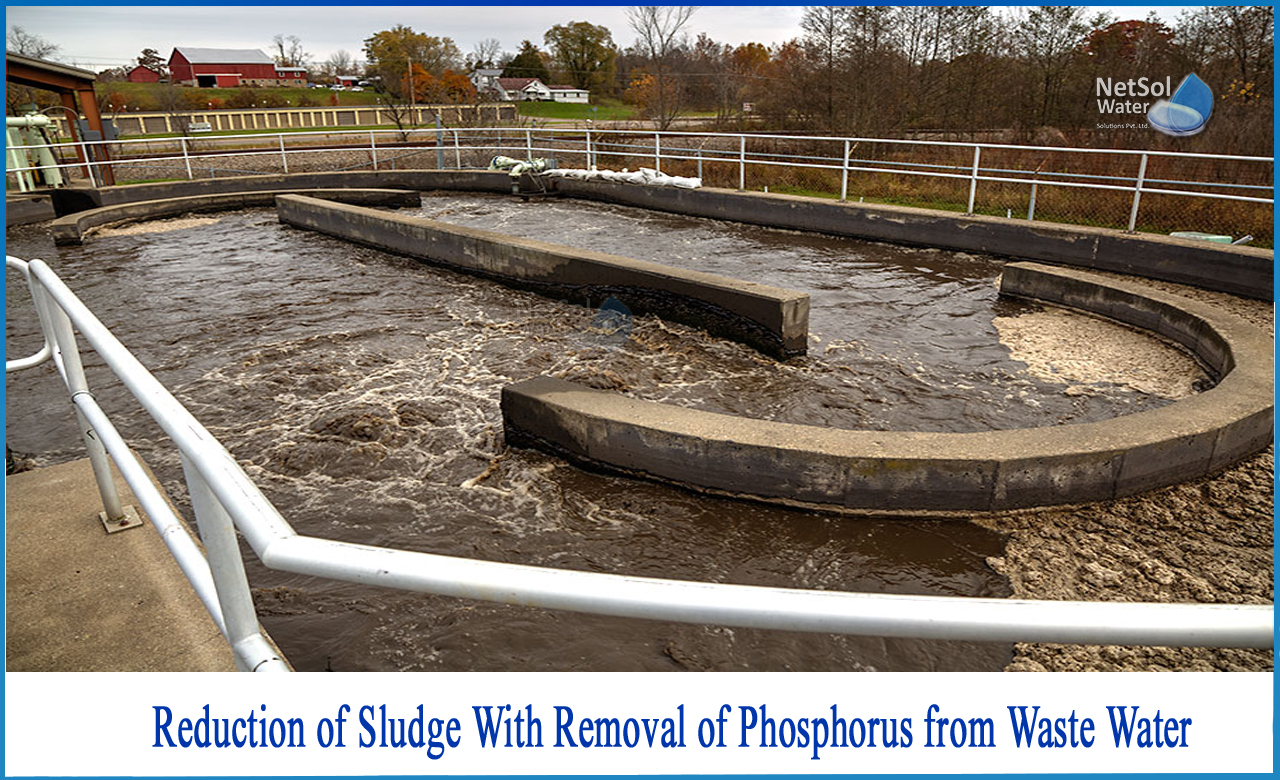How to remove phosphorus from waste water?
Controlling phosphorus discharged from municipal and industrial wastewater treatment plants is a critical component of preventing surface water eutrophication. Phosphorous is one of the most important nutrients in the eutrophication of lakes and natural waters. Its presence causes a slew of water quality difficulties, including higher purification costs, diminished recreational and conservation value of impoundments, livestock losses, and the risk of algae toxins becoming fatal in drinking water.
Chemical precipitation is currently used to remove phosphate, which is costly and results in a 40% increase in sludge volume. Biological phosphate removal is another option (BPR).
Phosphorus is commonly found in aqueous solutions in the following forms:
- Orthophosphates: The most frequent kind of phosphorus found in aqueous solutions are orthophosphates. Without the need for further breakdown, it is available for cellular metabolism.
- Polyphosphates: Polyphosphates are complex compounds containing two or more phosphorous atoms, oxygen, and, in certain situations, hydrogen atoms. Polyphosphates are usually hydrolyzed and reverted to orthophosphate forms. This is usually a lengthy procedure.
Since, secondary treatment can only eliminate 1-2 mg/l of phosphorus, a large amount of phosphorus is discharged in the final effluent, leading to eutrophication in surface waterways.
Production of Sludge
In a WWTP, the volume of sludge generated is only around 1% of the volume of influent wastewater to be treated (dewatered sludge is 0.5). To run WWTPs successfully and efficiently, waste sludge, which contains inert elements and surplus biomass, must be recovered to prevent it from collecting inside the system.
Sludge Handling Units: Need of reducing sludge
In addition to cell biomass, a high amount of non-biodegradable (inert) particles in particulate form inbound with the influent raw wastewater, adds significantly to sludge development during biological wastewater treatment. Inert organic solids can be found in sludge due to their presence in influent wastewater, endogenous residue created during microbial decay, or protozoan activity, which may not entirely destroy the bacterial cell walls, leaving inert material behind. As a result, understanding and approximating the potential effectiveness of a sludge reduction strategy requires a thorough understanding of sludge composition. When a very high sludge reduction is desired, a large amount of refractory particle organic material must be converted into a biodegradable fraction.
Removal of phosphorus is directly proportional to reducing sludge in waste water
Even for mild limits of 1 mg/L, the chemical sludge produced by typical coagulants for removing phosphorus from wastewater can increase the volume and weight of your sludge by up to 40%. Due to a rise in the Al or Fe/P eliminated dose necessary, this can quickly climb to a 55 percent increase or even more for very low limits, less than 1 mg/L. The lower your phosphorus restrictions, the more sludge volume and weight will increase.
Netsol water reliably removes phosphorus while reducing chemical sludge production
Netsol Water uses Lanthanide salts for the waste water treatment. Traditional chemical coagulants are substantially less effective at bonding with and removing phosphorus than lanthanides. The majority of customers report a 20 to 40% reduction in sludge, as well as easier dewatering and drier cake. In the end, clients send far less sludge to the landfill or incinerator, saving money on sludge processing and disposal.
Conclusion
Netsol can help you optimize and simplify your operations while also offering consistent phosphorus removal and reducing sludge disposal costs. With gas and diesel prices expected to remain high well into 2022, now may be the best time to investigate how changing to Netsol might help you reduce sludge output, improve dewatering, and lower sludge disposal costs.
Netsol Water is Greater Noida-based leading water & wastewater treatment plant manufacturer. We are industry's most demanding company based on client review and work quality. We are known as best commercial RO plant manufacturers, industrial RO plant manufacturer, sewage treatment plant manufacturer, Water Softener Plant Manufacturers and effluent treatment plant manufacturers. Apart from this 24x7 customer support is our USP. Call on +91-9650608473, or write us at enquiry@netsolwater.com for any support, inquiry or product-purchase related query.



